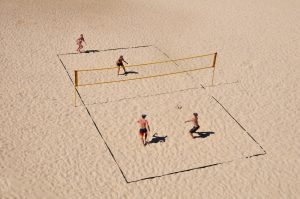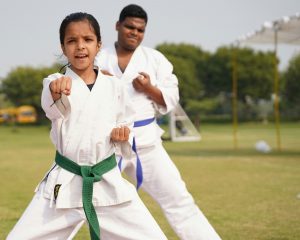15 Benefits of Regular Gaelic Football for Cultural Sport and Fitness
Gaelic football is a dynamic and traditional Irish sport that offers a wide range of benefits for individuals who participate regularly. Whether you’re a seasoned player or just starting out, Gaelic football provides a unique blend of cultural enrichment, physical fitness, and personal development. Let’s delve deeper into the multifaceted advantages of this beloved sport.
Cultural Importance
Gaelic football is deeply rooted in Irish culture and history, providing players with a connection to their heritage and traditions. It is more than just a sport; it carries a rich legacy that is passed down through generations, making it an integral part of Irish identity.
Embracing Traditions
Participating in Gaelic football allows players to engage with traditions that have been cherished for centuries. The sport is often seen as a celebration of Irish culture, with matches that bring communities together. Attending a local game is not just about the competition; it’s about the shared experience and the stories that unfold on the field.
Building Community Bonds
For many Irish communities, Gaelic football clubs act as social hubs. These clubs host events beyond the pitch, such as cultural nights, fundraisers, and community gatherings, fostering a strong sense of belonging among members.
Physical Fitness
The fast-paced nature of Gaelic football requires players to have good cardiovascular endurance, agility, and strength. The constant running, tackling, and quick changes of direction involved in the game contribute to overall physical health and fitness.
Cardiovascular Endurance
Gaelic football matches often last over an hour, requiring players to sustain energy levels and maintain high-intensity performance. This endurance training enhances heart health, boosts stamina, and promotes efficient oxygen utilization in the body.
Agility and Quick Reflexes
The game involves rapid sprints, sudden stops, and swift directional changes, all of which enhance agility. Players often engage in drills that improve their reflexes and reaction times, which are essential not just in sports but in everyday activities.
Teamwork and Communication
Playing Gaelic football promotes teamwork and communication skills as players must work together towards a common goal. It fosters a sense of camaraderie and unity among team members, emphasizing the importance of effective communication and collaboration on the field.
Effective Communication
On the field, players need to communicate swiftly and clearly, whether it’s calling for passes or organizing defensive plays. This kind of communication is crucial for success and translates well into professional and personal interactions off the field.
Leadership Development
Captains and experienced players often take on leadership roles, guiding their teams through strategy discussions and motivating fellow players. This leadership experience can be profoundly beneficial, enhancing one’s ability to lead in various life situations.
Mental Health
Engaging in regular physical activity like Gaelic football can improve mental well-being, reduce stress, and boost mood. The endorphins released during exercise can help alleviate symptoms of anxiety and depression, leading to better overall mental health.
Stress Management
The demands of training and competition in Gaelic football provide a constructive outlet for stress. Players often find that their worries dissipate during practice sessions, replaced by focus and the camaraderie of being part of a team.
Boosting Self-Esteem
Overcoming on-field challenges and achieving personal milestones, such as mastering a new skill or improving performance, can significantly boost self-esteem. This confidence often spills over into other areas of life, helping individuals tackle challenges with a positive outlook.
Social Interaction
Being part of a Gaelic football team fosters social connections and friendships, creating a sense of community. It provides an opportunity to meet like-minded individuals, form bonds, and build lasting relationships both on and off the field.
Networking Opportunities
For many, Gaelic football teams are a valuable networking platform, opening doors to professional opportunities and collaborations. The shared passion for the sport creates a conducive environment for building meaningful connections.
Lifelong Friendships
The friendships formed on the field often extend beyond the game. Many players find themselves forging lifelong bonds, participating in each other’s significant life events, and offering support beyond the confines of sport.
Discipline and Focus
Gaelic football requires players to be disciplined and focused, enhancing their ability to concentrate and stay goal-oriented. The strategic gameplay and tactical decision-making in Gaelic football challenge players to hone their discipline and focus, skills that are transferable to other aspects of life.
Strategic Thinking
The sport requires players to think on their feet and anticipate opponents’ moves. This kind of strategic thinking is invaluable, teaching players how to analyze situations quickly and make informed decisions under pressure.
Time Management
Balancing training schedules, match commitments, and personal responsibilities teaches players excellent time management skills. This ability to prioritize and manage time effectively is a crucial life skill that extends beyond the sports arena.
Improved Coordination
The combination of kicking, catching, and running in Gaelic football helps improve coordination and motor skills. Players must coordinate their movements to control the ball effectively, leading to enhanced agility and hand-eye coordination.
Motor Skills Development
Regular practice improves fine and gross motor skills, which are essential for executing precise movements on the field. These skills are also beneficial in daily tasks requiring dexterity and coordination.
Balance and Stability
The sport’s dynamic movements enhance players’ balance and stability, reducing the risk of injuries both on and off the field. Trainers often include balance exercises in practice sessions to further enhance these abilities.
Cardiovascular Health
Regular participation in Gaelic football can lead to improved cardiovascular health, reducing the risk of heart disease and stroke. The aerobic nature of the sport strengthens the heart and lungs, improving overall cardiovascular function and endurance.
Heart Health Benefits
The rigorous physical activity involved in Gaelic football promotes a healthy heart by lowering blood pressure and improving cholesterol levels. This contributes to a reduced risk of cardiovascular ailments.
Increased Lung Capacity
Frequent high-intensity training enhances lung capacity, enabling players to perform better and recover faster. This increased oxygen intake is beneficial not only in sports but also in daily physical activities.
Strength Building
The physical demands of Gaelic football, such as sprinting and tackling, contribute to muscle strength and endurance. Players engage in varied physical activities that target different muscle groups, enhancing overall strength and power.
Resistance Training
Incorporating resistance exercises in training routines helps build muscle mass and strength. This not only improves performance on the field but also contributes to better posture and physical resilience.
Functional Strength
Functional strength gained from playing Gaelic football aids in performing everyday activities with ease and reduces the risk of injury by reinforcing the musculoskeletal system.
Flexibility
Gaelic football involves a range of movements that can enhance flexibility and joint mobility. The dynamic nature of the game, which requires quick changes in direction and movements, promotes flexibility and improves range of motion.
Stretching Regimens
Players often engage in stretching routines before and after games to maintain flexibility. This practice helps prevent injuries, promotes muscle recovery, and enhances overall athletic performance.
Joint Health
Regular engagement in the sport can improve joint health, reducing the likelihood of stiffness and improving mobility. This is particularly beneficial as one ages, helping maintain an active lifestyle.
Stress Relief
Playing Gaelic football provides a healthy outlet for stress relief and can help individuals unwind after a long day. The physical exertion and team camaraderie can serve as a form of relaxation, allowing players to release pent-up tension and stress.
Mindfulness on the Field
The focus required during gameplay encourages a form of mindfulness, where players are fully immersed in the moment. This mental engagement can be a powerful antidote to stress and anxiety.
Emotional Release
The emotional highs and lows experienced during matches provide a healthy way to process emotions. This emotional release can be cathartic, helping players deal with stressors outside of the sport.
Confidence Boost
Successfully participating in Gaelic football matches can boost self-confidence and self-esteem. Overcoming challenges on the field and achieving personal or team goals can instill a sense of accomplishment and confidence in players, boosting their self-belief.
Overcoming Adversity
Facing and overcoming challenges in the sport builds resilience and fortitude. This experience can empower players, giving them the confidence to face personal and professional challenges with determination.
Celebrating Achievements
Recognizing and celebrating personal and team achievements, no matter how small, reinforces a positive self-image and encourages continuous improvement.
Goal Setting
Setting and achieving goals in Gaelic football can instill a sense of accomplishment and motivation. Whether it’s improving skills, winning a match, or contributing to the team’s success, the goal-setting aspect of the sport motivates players to strive for continuous improvement and growth.
Personal Development Plans
Players often create personal development plans to track progress and set new objectives. This practice encourages accountability and fosters a growth mindset, essential for personal and professional success.
Team Objectives
Working towards team goals teaches players the value of collaboration and shared success. This understanding of collective achievement is vital in both professional settings and community engagements.
Skill Development
Gaelic football offers opportunities for players to develop new skills such as ball-handling, decision-making, and strategic thinking. Engaging in the sport provides a platform for skill enhancement and mastery, allowing players to learn and refine a diverse set of abilities.
Ball-Handling Mastery
Mastering control over the ball requires practice and technique, which contributes to better game performance. These skills are developed through drills and practice sessions focused on precision and control.
Decision-Making under Pressure
Players learn to make quick decisions under pressure, a skill that is transferable to many life situations. This ability to think critically and act decisively is invaluable in fast-paced environments.
Enjoyment and Satisfaction
Ultimately, regular participation in Gaelic football can bring enjoyment, satisfaction, and a sense of fulfillment to players of all ages and abilities. The thrill of competing, the joy of teamwork, and the sense of achievement from mastering the game contribute to an overall positive experience that resonates with players on a personal level.
The Joy of Play
Many players find that the simple joy of playing the game is a significant motivator. This joy encourages them to return to the field repeatedly, fostering a lifelong passion for the sport.
Personal Fulfillment
The sense of accomplishment from mastering skills and achieving goals provides profound personal fulfillment. This satisfaction reinforces the positive impact of the sport on one’s life, encouraging continued participation and growth.



